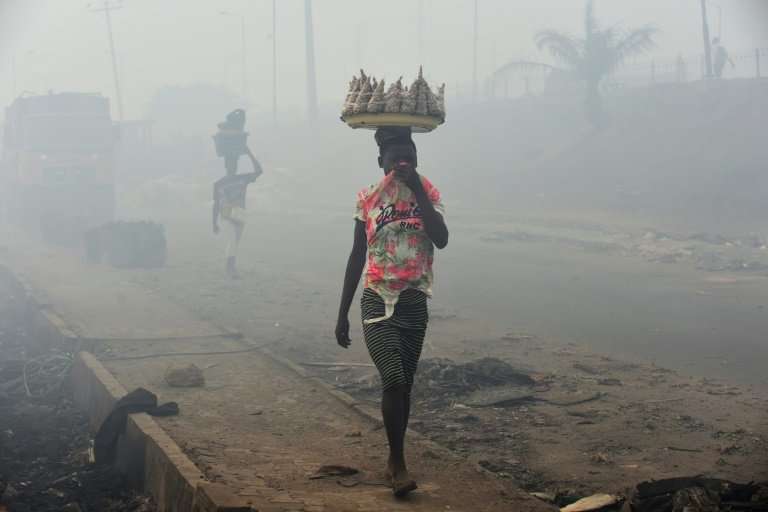
One of the major resolutions of the just concluded 78th United Nations General Assembly (UNGA) in New York, United States, is historic commitment shown by global leaders to strengthen international cooperation, coordination, governance and investment needed to prevent a repeat of the devastating health and socioeconomic impact caused by COVID-19, make the world better prepared for future pandemic, and get back on track to achieving the Sustainable Development Goals.
“The first-ever head of state summit on pandemic prevention, preparedness and response is a historic milestone in the urgent drive to make all people of the world safer, and better protected from the devastating impacts of pandemics,” said Dr. Tedros Adhanom Ghebreyesus, WHO Director-General.
“I welcome this commitment by world leaders to provide the political support and direction needed so that WHO, governments and all involved can protect people’s health and take concrete steps towards investing in local capacities, ensuring equity and supporting the global emergency health architecture that the world needs.”
The political declaration, approved by Mr. Dennis Francis, President of the 78th United Nations General Assembly, and the result of negotiations under the able leadership of Ambassadors Gilad Erdan of Israel and Omar Hilale of Morocco, underscored the pivotal role played by WHO as the “directing and coordinating authority on international health,” and the need to “commit further to sustainable financing that provides adequate and predictable funding to the World Health Organization, which enables it to have the resources needed to fulfil its core functions.”
“The lived experience of people who suffered through the COVID-19 pandemic must be at the forefront of our minds going forward in order to realize the clear direction provided by world leaders,” said Ghebreyesus. “We must learn how to protect our communities better and to engage, inform and empower them to be part of the solution. We need to build stronger clinical care systems that can save lives. Doing so requires concrete actions to ensure equitable access to medical countermeasures, sustainable and adequate financing, empowered and engaged communities and robust, trained and equipped health workers.”
“The devastating impacts of COVID-19 demonstrated why the world needs a more collaborative, cohesive and equitable approach to preventing, preparing for and responding to pandemics,” said Dr Tedros.
Ghebreyesus said governments and multilateral partners have already commenced building the foundations for a safer world, with the establishment of the Pandemic Fund, the WHO Hub for Pandemic and Epidemic Intelligence, the WHO BioHub to voluntarily share novel biological materials, and the mRNA vaccine technology transfer hub.
However, Ghebreyesus added that the political declaration approved on Wednesday called for further strengthening of the global health emergency architecture to better protect the world from a repeat of COVID-19.
Also, last week, at the United Nations (UN) General Assembly High-Level Meeting, world leaders approved a new Political Declaration on “Universal Health Coverage (UHC): expanding our ambition for health and well-being in a post-COVID world”.
The declaration is hailed as a vital catalyst for the international community to take big and bold actions and mobilize the necessary political commitments and financial investments to attain the UHC target of the Sustainable Development Goals (SDGs) by 2030.
The UHC target measures the ability of countries to ensure that everyone receives the health care they need, when and where they need it, without facing financial hardship. It covers the full continuum of key services from health promotion to prevention, protection, treatment, rehabilitation and palliative care. Alarmingly, global progress towards UHC has been largely stagnating since 2015, before stalling in 2019.
The urgency of the declaration is evident in the staggering statistics. At least 4.5 billion people—more than half of the world’s population—were not fully covered by essential health services in 2021. Two billion people experienced financial hardship, with over 1.3 billion being pushed or further pushed into poverty just trying to access basic health care – a stark reality of widening health inequities.
“Ultimately, universal health coverage is a choice–a political choice,” said WHO Director-General. “The political declaration countries approved today is a strong signal that they are making that choice. But the choice is not just made on paper. It’s made in budget decisions and policy decisions. Most of all, it’s made by investing in primary health care, which is the most inclusive, equitable, and efficient path to universal health coverage.”
In the Political Declaration, Heads of State and world leaders committed to take key national actions, make essential investments, strengthen international cooperation and global solidarity at the highest political level to accelerate progress towards UHC by 2030, using a primary health care (PHC) approach.
For health care to be truly universal, it requires a shift from health systems designed around diseases to systems designed for people. PHC, an approach to strengthening health systems centred on people’s needs, is one of the most effective areas for investment to accelerate progress towards UHC.
Countries that have taken a PHC approach have better ability to rapidly build stronger, more resilient health systems to reach the most vulnerable and achieve a higher return on health investments. Most importantly, they ensure that more people are covered with essential health services and are empowered to participate in making the decisions that affect their health and well-being.
It is estimated that an additional US$ 200–328 billion investment per year is needed to scale-up a PHC approach in low- and middle-income countries (example up to approximately 3.3 per cent of national gross domestic product). This could help health systems deliver up to 90 per cent of essential health services, save at least 60 million lives and increase average life expectancy by 3.7 years by 2030.
WHO, through its network of more than 150 country offices and six regional offices, provides technical support to accelerate the radical reorientation of health systems through PHC focused approaches, and ensures robust normative guidance to track progress for accountability and impact.






